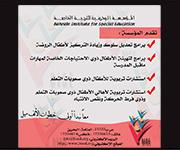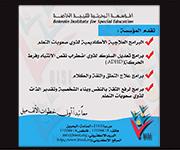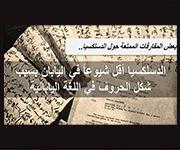Dyslexia is a specific learning difficulty that mainly affects reading and spelling. Dyslexia is characterized by difficulties in processing word-sounds and by weaknesses in short-term verbal memory; its effects may be seen in spoken language as well as written language. The current evidence suggests that these difficulties arise from inefficiencies in language-processing areas in the left hemisphere of the brain which, in turn, appear to be linked to genetic differences.
Dyslexia is life-long, but its effects can be minimised by targeted literacy intervention, technological support and adaptations to ways of working and learning. Dyslexia is not related to intelligence, race or social background. Dyslexia varies in severity and often occurs alongside other specific learning difficulties, such as Dyspraxia or Attention Deficit Disorder, resulting in variation in the degree and nature of individuals’ strengths and weaknesses.
Key Facts Dyslexia is a specific learning difficulty, mainly affecting reading and spelling. About 10% of the population are affected by dyslexia to some degree.
Dyslexia tends to run in families; it is known that there are several genes that contribute to a genetic risk of dyslexia. Brain scanning studies suggest that, in dyslexic people, the connections between different language areas of the brain do not work as efficiently as they should. However, these differences are not linked to intelligence, and there is evidence that many dyslexic people have strengths and abilities in tasks that involve creative and visually-based thinking.
Dyslexic people usually find it difficult to analyse and work with the sounds of spoken words, and many have difficulties with short-term memory, sequencing and organisation. This means that it is more difficult for them to learn how spoken sounds map onto letters, which affects the ability to spell and the ability to decode or ‘sound out’ words. Although many dyslexic people can learn to use phonic, decoding, skills they typically need a great deal of instruction, and they often never reach a stage where these skills are fully automatic.
Dyslexia is not the same as a problem with reading. Many dyslexic people learn to read, but have continuing difficulties with spelling, writing, memory and organisation. There are also people whose difficulties with reading are not caused by dyslexia. Dyslexia often causes problems in maths: many dyslexic people have difficulties with arithmetic and with learning and recalling number facts.
The degree to which dyslexia causes problems, in learning and in everyday life, depends on many factors. These include the severity of the dyslexia, the other strengths and abilities that a person has, and the kind of teaching and support they may have been given.
Dyslexia need not be a barrier to achievement and success if it is properly recognized within society, and steps are taken to provide suitable teaching and training along with compensatory strategies and resources.
Dyslexia Action's Approach
Dyslexia Action works with those who have literacy and numeracy difficulties that may be linked to dyslexia, to a different kind of specific learning difficulty or to other factors.
There are two keys to overcoming the effects of dyslexia. At all ages, it is possible to improve literacy skills by using structured, multisensory methods, but research shows that early intervention is more effective. In adulthood, and in the later stages of schooling, the key to success is through improving skills, and by developing compensatory and coping strategies through an understanding of individual strengths and weaknesses and the consequences of those for learning and working in different ways.
A diagnostic assessment at Dyslexia Action examines literacy and numeracy skills and investigates the factors that may be affecting those skills. It will focus on the pattern of strengths and weaknesses usually seen in dyslexia, but will also consider the other major specific learning difficulties and other social and environmental factors that can impact on learning.
Dyslexia Action can design and deliver a programme of support that is tailored to an individual’s profile of strengths and weaknesses, addressing their specific needs and priorities as identified through assessment.
http://www.dyslexiaaction.org.uk/Page.aspx?PageId=26











